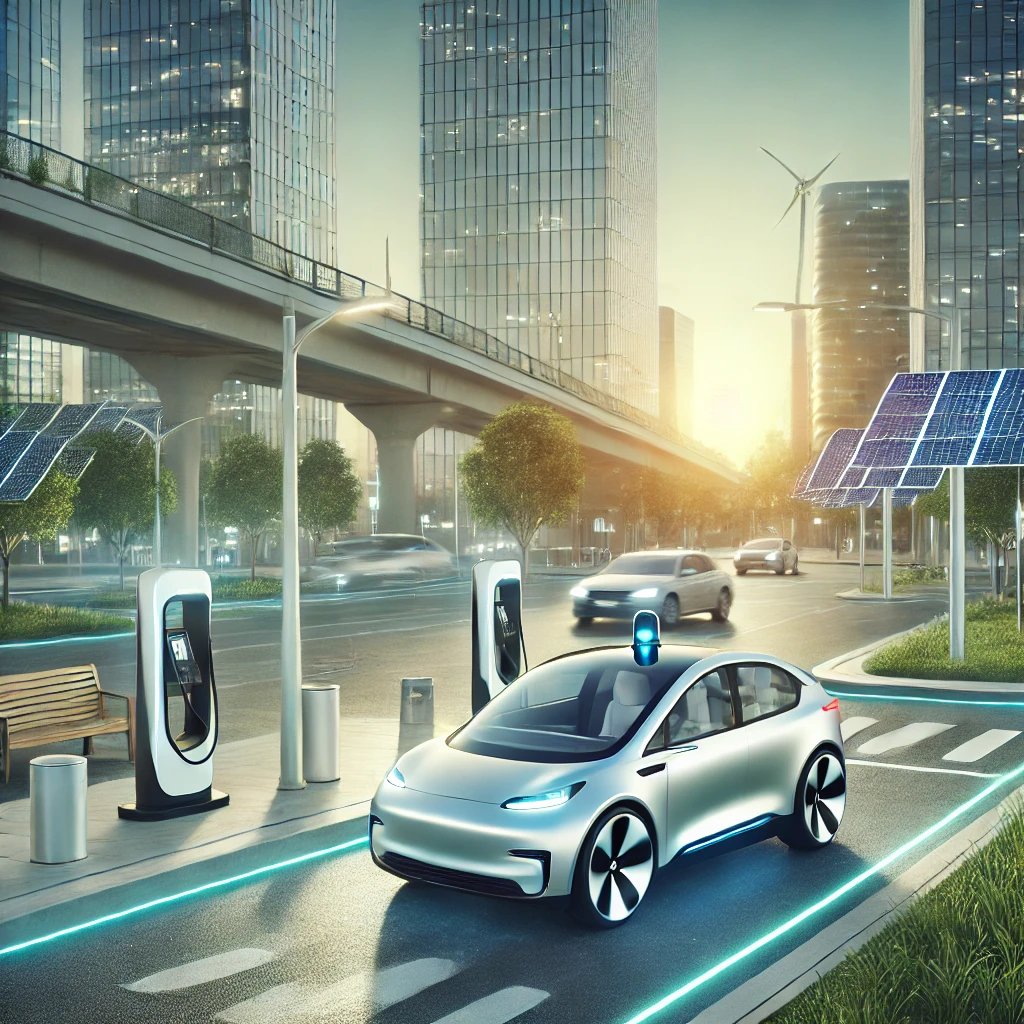
Technology is evolving at an unprecedented pace, reshaping nearly every aspect of our daily lives. From how we communicate to the way we work, learn, and entertain ourselves, technological advancements have made our routines more efficient, connected, and in many ways, simpler.
Here’s an in-depth look at how technology is impacting our lives in various fields and what changes we can expect as it continues to evolve.
The Impact of Technology on Communication
One of the most visible changes brought about by technology is how we communicate. Smartphones, instant messaging, video calls, and social media platforms have made it possible to connect with anyone, anywhere, at any time.
- Real-time Communication: Platforms like WhatsApp, Zoom, and FaceTime allow real-time communication, helping people connect personally and professionally. The demand for virtual meetings has grown significantly, especially since the pandemic, making remote work a viable option for many.
- Social Media Influence: Social media platforms like Facebook, Instagram, and Twitter have transformed how we share information and stay updated. In 2023, over 4.9 billion people used social media globally, creating an interconnected world where news, trends, and ideas spread rapidly.
The Role of Technology in Education
Educational technology, or EdTech, has brought about profound changes in learning methods and accessibility to quality education.
- Online Learning Platforms: Platforms like Coursera, Udemy, and Khan Academy have made education more accessible. Now, students can learn new skills or complete entire degrees from the comfort of their homes.
- Personalized Learning: With the help of artificial intelligence (AI), students can access customized learning experiences. AI-driven algorithms analyze individual learning patterns, providing resources that cater specifically to a learner’s pace and style.
- Virtual and Augmented Reality: Technologies like VR and AR are used in classrooms to create immersive educational experiences. For instance, students studying history can now “visit” historical sites virtually, enhancing understanding and engagement.
The Rise of Smart Homes
Smart homes are becoming increasingly common, with the Internet of Things (IoT) at the core of this transformation. Smart home devices make daily tasks simpler, conserve energy, and provide enhanced security.
- Voice Assistants and Automation: Voice-activated devices like Amazon Alexa, Google Assistant, and Apple’s Siri help with tasks like setting reminders, controlling home lighting, and playing music. The global smart home market is predicted to grow to $138 billion by 2026, reflecting the high demand for convenience and automation.
- Energy Efficiency: Smart thermostats, lighting systems, and appliances use AI and data to manage energy efficiently, which can reduce utility bills and lower environmental impact.
- Home Security: Devices such as smart locks, cameras, and alarm systems are making homes safer. With real-time alerts and remote access, homeowners can monitor their properties from anywhere in the world.
Transportation and Mobility
Technology has also revolutionized the way we travel, making transportation safer, faster, and more efficient.
- Electric and Autonomous Vehicles: Electric vehicles (EVs) like those from Tesla, and autonomous driving technology are changing the automobile industry. EVs contribute to reducing carbon emissions, and autonomous driving promises safer roads by reducing human error. The global EV market is projected to reach $1.32 trillion by 2028, signifying the shift toward sustainable travel.

- Ridesharing Services: Ridesharing apps like Uber and Lyft have altered how people commute. These apps use GPS and real-time data to provide cost-effective and convenient transport solutions. They also offer flexible work opportunities for drivers.
- Urban Air Mobility: Companies like Uber and Hyundai are exploring air taxis and urban air mobility solutions. While still in development, these innovations hold the potential to alleviate urban congestion and transform city travel.
How Technology is Changing Healthcare
The healthcare industry has greatly benefited from technology, with digital innovations enhancing patient care, diagnosis, and treatment.
- Telemedicine: Telehealth services have seen massive growth, providing remote consultations through platforms like Teladoc and Doctor on Demand. Telemedicine proved essential during the COVID-19 pandemic, allowing patients to receive care without visiting a healthcare facility.
- Wearable Health Devices: Wearable tech, such as Fitbit, Apple Watch, and Oura Ring, provides real-time health data on metrics like heart rate, oxygen levels, and sleep patterns. These devices help individuals monitor their health and make informed lifestyle choices.
- AI in Diagnostics: Artificial intelligence is aiding in diagnosing complex diseases. AI algorithms can detect patterns in medical imaging, helping doctors spot issues like tumors and other abnormalities with high accuracy. In cancer detection, for example, AI systems have achieved accuracy rates of up to 94%.
The Influence of Technology on Shopping and Retail
Online shopping and e-commerce have redefined the retail industry, making it easier than ever to shop from anywhere with an internet connection.
- E-Commerce Platforms: Sites like Amazon, Alibaba, and eBay have become essential for modern shopping. The global e-commerce market is expected to reach $6.54 trillion by 2023, driven by the convenience and accessibility of online shopping.
- Contactless Payments: Technology has made payments easier and more secure. With options like Apple Pay, Google Wallet, and contactless cards, customers can make payments with a simple tap. Digital wallets are also widely used for online transactions, enhancing convenience and security.
- Personalized Shopping Experiences: With data and AI, online retailers provide personalized recommendations to customers based on past purchases and browsing behavior. This personalization improves user experience and often leads to higher conversion rates for retailers.
Conclusion:
Technology has fundamentally transformed daily life, offering countless opportunities to enhance efficiency, convenience, and connectivity. From healthcare to finance, transportation to education, technology continues to reshape the world around us.
As we move forward, embracing these changes and staying informed about the latest developments will enable us to make the most of technology’s benefits, enriching our lives in numerous ways.
Technology’s impact on our lives is only expected to grow, making it an exciting time to be part of this digital age.
READ ALSO:







